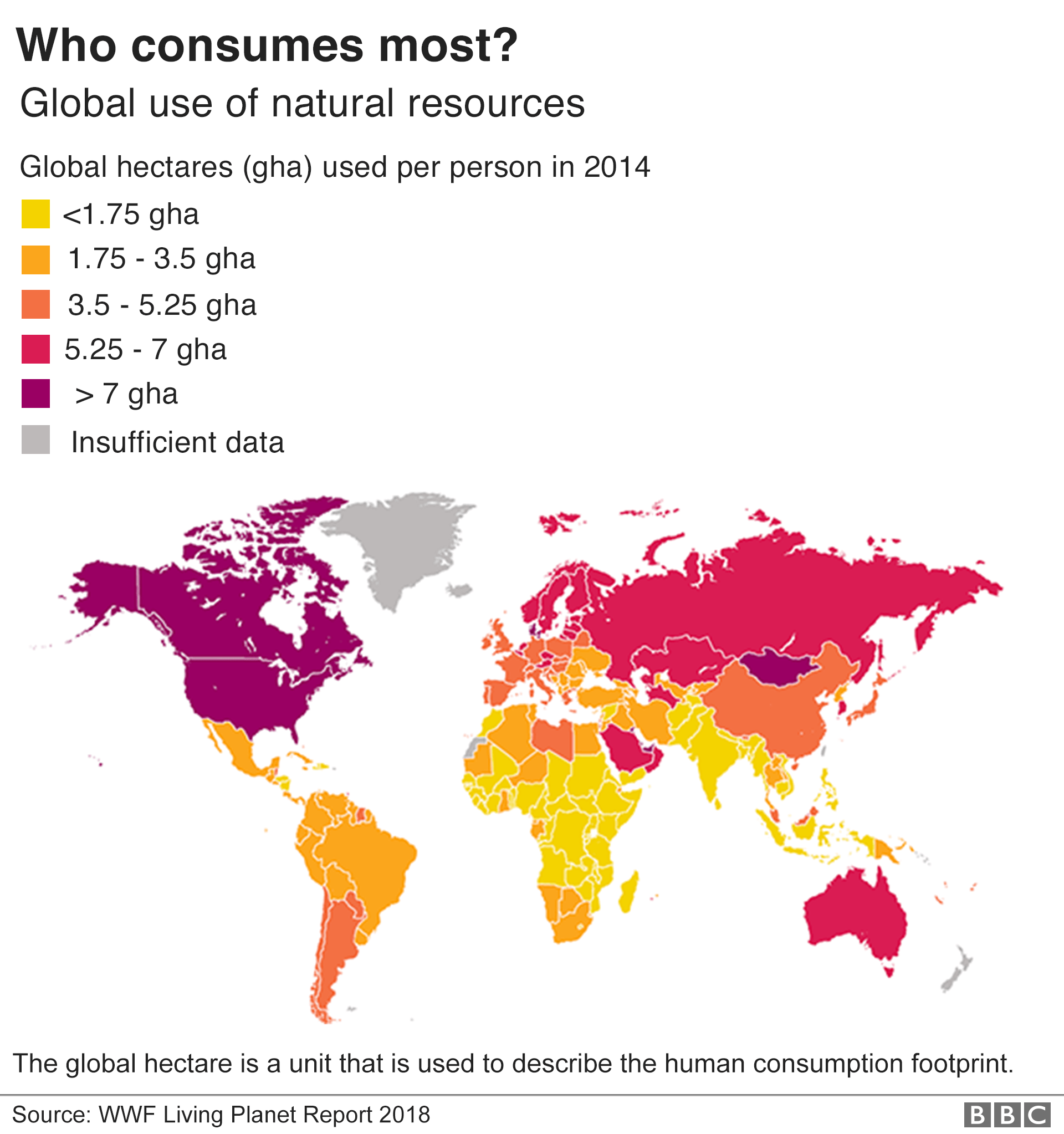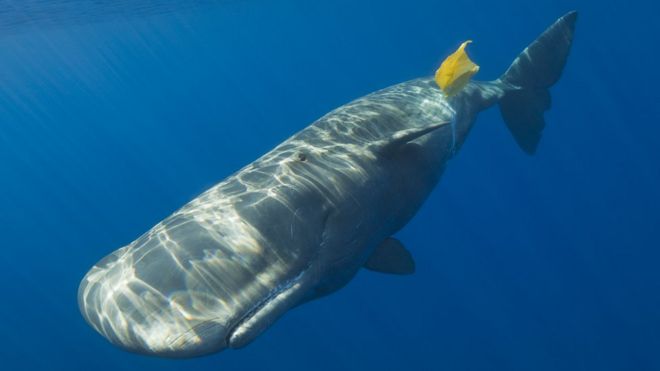My comment: We will leave our children a polluted, increasingly heating and erratic world depleted of more than 60% of all wildlife species. Shame on us!
"Exploding human consumption" has caused a massive drop in global wildlife populations in recent decades, the WWF conservation group says.
In a report, the charity says losses in vertebrate species - mammals, fish, birds, amphibians and reptiles - averaged 60% between 1970 and 2014.




